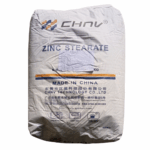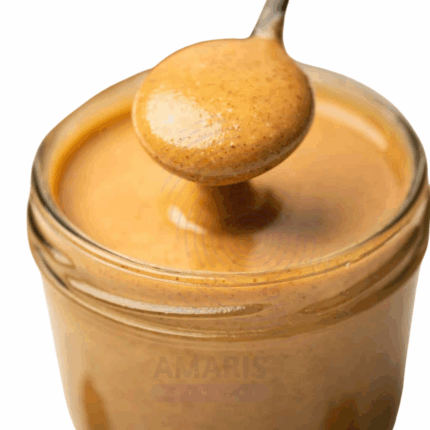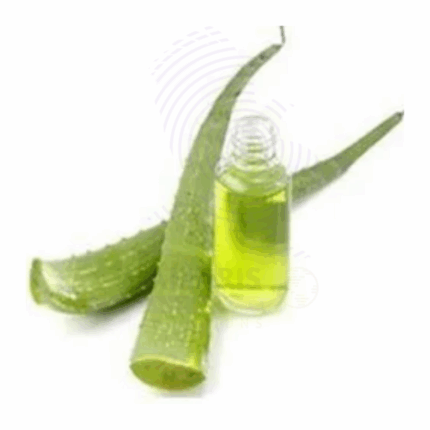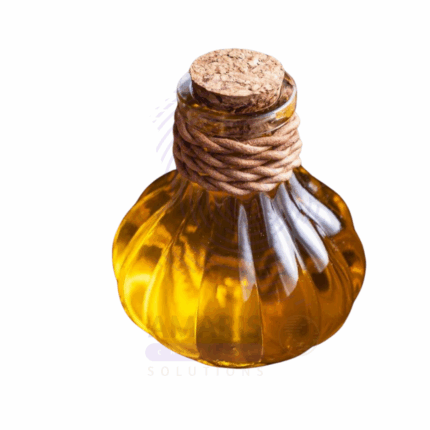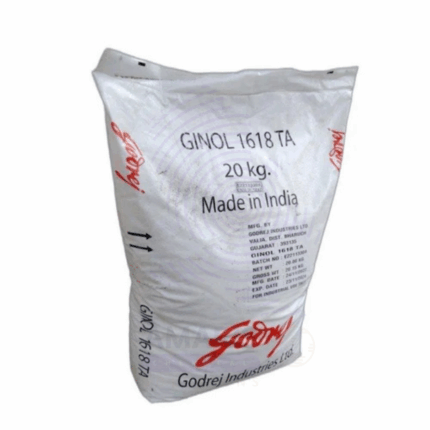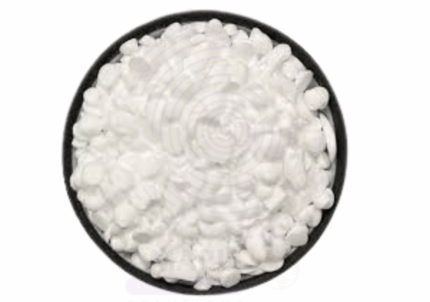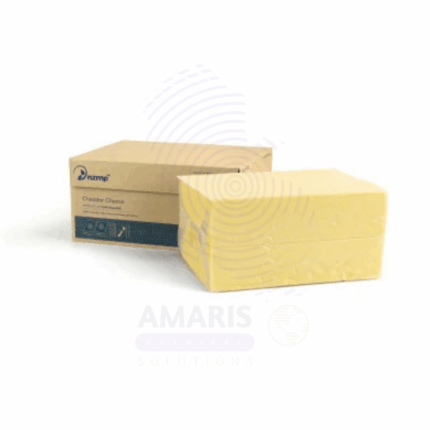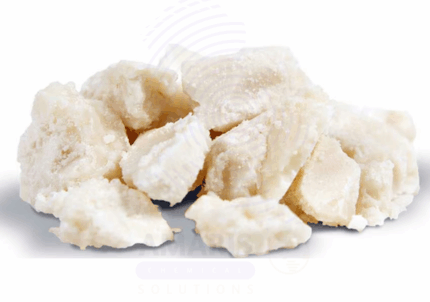Melon Seed Oil
Whatsapp Order
Melon Seed Oil, derived from the seeds of the Cucumis melo (melon) fruit, is a lightweight, non-greasy carrier oil valued for its moisturizing and nourishing properties. Rich in essential fatty acids, vitamins A, C, and E, and antioxidants, this oil supports skin hydration, elasticity, and repair. Traditionally used in skin and hair care formulations, Melon Seed Oil is prized for its ability to soften and protect delicate or sensitive skin without clogging pores. Its mild, slightly nutty aroma makes it an excellent base oil for cosmetic, therapeutic, and personal care applications.
Category: Emollients
Tags: Cucumis Melo Seed Oil, Hair Nourishing Oil, Melon Seed Oil, Natural Carrier Oil, Skin Moisturizer
Description
Table of Contents
Toggle
Melon Seed Oil
Primary Uses
- Aromatherapy & Wellness
- Used as a carrier oil for diluting essential oils in massage and topical blends.
- Incorporated in blends to soothe dry, irritated, or sensitive skin.
- Applied in moisturizing formulations to enhance skin barrier function.
- Used in hair treatments to nourish the scalp and improve hair texture.
- Included in baby and sensitive skin care for gentle hydration and protection.
- Cosmetics and Personal Care
- Added to creams, lotions, and serums for emollient and antioxidant benefits.
- Used in facial oils and makeup removers for softening and moisturizing effects.
- Incorporated in hair oils and conditioners to promote shine and manageability.
- Blended into lip balms and body butters for nourishing hydration.
- Used in natural deodorants and sunscreens as a skin-conditioning ingredient.
- Topical Applications
- Applied as a base oil in therapeutic ointments and balms for skin repair.
- Used in compresses and wraps for soothing inflamed or sensitive skin areas.
- Incorporated in anti-aging formulations for skin elasticity and wrinkle reduction.
Secondary Uses
- Fragrance and Ambient Scenting
- Used as a carrier oil in perfumery to dilute and fix essential oils.
- Incorporated in scented massage oils and bath blends for a neutral base.
- Spa and Therapeutic Products
- Added to massage oils and spa treatments for moisturizing and relaxing effects.
- Used in body scrubs and exfoliants to provide slip and skin conditioning.
- Included in aromatherapy blends to support skin health and hydration.
KEY PRODUCT FEATURES
1. Basic Identification Attributes
- Botanical Name: Cucumis melo
- Common/Trade Name: Melon Seed Oil
- INCI Name: Cucumis Melo Seed Oil
- CAS Number: 84929-28-6
- HS Code: 1515.90
- Synonyms: Musk Melon Seed Oil
2. Physical & Chemical Properties
- Physical State: Liquid carrier oil
- Color & Odor: Pale yellow; mild, nutty aroma
- Solubility: Insoluble in water; soluble in alcohol and oils
- Refractive Index: 1.470 – 1.475
- Specific Gravity: 0.910 – 0.930
- Main Components: Linoleic acid, oleic acid, palmitic acid, vitamins A and E
3. Safety & Hazard Attributes
- GHS Classification: Generally recognized as safe; low irritation potential
- Toxicity: Non-toxic; safe for topical use
- Exposure Limits: Not established
- Allergen Information: Minimal allergenic potential
4. Storage & Handling Attributes
- Storage Conditions: Store in cool, dry, dark place away from heat and light
- Container Type: Amber glass or aluminum containers with airtight seals
- Shelf Life: 12 to 24 months when properly stored
- Handling Precautions: Avoid contamination and prolonged exposure to air
5. Regulatory & Compliance Attributes
- Produced in GMP-certified facilities
- Compliant with cosmetic regulatory standards
- Not classified as hazardous for transport
6. Environmental & Health Impact
- Biodegradability: Biodegradable under normal environmental conditions
- Ecotoxicity: Low aquatic toxicity
- Bioaccumulation: Not expected to bioaccumulate
SAFETY HANDLING PRECAUTIONS
Safety Handling Precautions
- PPE Required: Gloves recommended for bulk handling
- Handling Guidelines: Use in ventilated area; avoid contamination
First Aid Measures
- Inhalation: Not applicable for typical use
- Skin Contact: Wash with soap and water if irritation occurs
- Eye Contact: Rinse thoroughly with water
- Ingestion: Seek medical advice if large amounts ingested
Firefighting Measures
- Fire Hazards: Non-flammable oil; keep away from open flames
- Extinguishing Media: Water spray, foam, dry chemical powder
- Special Precautions: Avoid inhalation of smoke if burning occurs
- Hazardous Combustion Products: Carbon monoxide, carbon dioxide
Related products
Almond Butter
Almond Butter is a smooth, creamy paste made by grinding roasted or raw almonds into a nutrient-rich spread. It retains the natural oils and flavor of almonds, offering a mild, nutty aroma and rich, buttery texture. Almond Butter is packed with monounsaturated fats, protein, vitamin E, magnesium, and antioxidants, making it a highly valued ingredient in the food, nutraceutical, and personal care industries.
In cosmetics and skincare, Almond Butter is prized for its emollient properties, making it a popular base for creams, balms, and body butters. It provides skin-softening, moisturizing, and barrier-protecting benefits. In the food and beverage industry, it is used as a spread, in smoothies, baked goods, energy bars, and dairy alternatives. It is also included in specialty pet food and wellness formulations.
Aloe Vera Oil
Aloe Vera Oil is an oil-based extract derived by infusing Aloe vera (Aloe barbadensis) leaves into a carrier oil such as coconut, soybean, or sunflower oil. It captures the beneficial compounds of aloe—including polysaccharides, vitamins, enzymes, and amino acids—in an oil-soluble form ideal for cosmetic, therapeutic, and personal care applications. Known for its soothing, anti-inflammatory, and moisturizing properties, Aloe Vera Oil is widely used in skin and hair care formulations.
This gentle, skin-friendly oil is suitable for sensitive skin and is commonly employed in after-sun products, healing ointments, massage oils, and anti-aging creams. It provides hydration, calms irritation, and promotes skin regeneration while adding emollient and conditioning benefits.
Baobab Oil
Baobab Oil is a luxurious, cold-pressed oil extracted from the seeds of the Adansonia digitata (baobab) tree, native to Africa. Rich in omega fatty acids (especially omega-3, 6, and 9), vitamins A, D, E, and F, and powerful antioxidants, Baobab Oil is prized for its deep moisturizing, skin-rejuvenating, and anti-inflammatory properties. It is a light, non-greasy oil that absorbs quickly into the skin, making it ideal for a wide range of cosmetic and personal care applications.
Baobab Oil is especially suited for dry, sensitive, or mature skin. It supports skin elasticity, improves tone, and helps reduce the appearance of scars and stretch marks. In hair care, it nourishes and protects, leaving hair soft and manageable. Its natural stability and skin compatibility make it a premium ingredient in high-performance formulations.
Ceto Stearyl Alcohol
Ceto Stearyl Alcohol 1618TA is a high-quality fatty alcohol blend primarily composed of cetyl (C16) and stearyl (C18) alcohols. It appears as a white, waxy solid or flakes with a mild fatty odor. This blend is widely used as an emollient, thickener, and co-emulsifier in cosmetic, pharmaceutical, and industrial formulations. Ceto Stearyl Alcohol 1618TA offers excellent lubricity, thickening, and stabilizing properties, enhancing the texture, consistency, and moisturizing characteristics of creams, lotions, and hair care products. It serves as a skin conditioning agent and contributes to the structural integrity of emulsions.
Cetyl Alcohol Flakes
Cetyl Alcohol Flakes is a high-purity fatty alcohol derived mainly from natural sources such as palm oil and coconut oil. Presented as white to off-white waxy flakes, this product contains at least 98% pure cetyl alcohol, ensuring consistent performance and quality. It is valued for its excellent emollient, thickening, and emulsifying properties and is widely used in personal care, pharmaceutical, and industrial formulations. The flake form facilitates easy handling, melting, and dosing in manufacturing processes. Cetyl Alcohol 98% Flakes contributes to the texture, stability, and moisturizing properties of various formulations, providing a non-greasy, smooth finish.
Coffee Butter
Coffee Butter is a natural, plant-derived fat extracted primarily from the coffee seed pulp or coffee cherry, sometimes from the coffee bean itself. It is a creamy, pale yellow to light brown solid at room temperature with a mild coffee aroma. Coffee Butter is rich in fatty acids, antioxidants, and vitamins, making it a valuable ingredient in cosmetics, skincare, and specialty food products. Known for its emollient, moisturizing, and antioxidant properties, Coffee Butter helps to nourish and protect the skin while providing a pleasant sensory experience. It is gaining popularity as a sustainable by-product of coffee processing, contributing to zero-waste initiatives.
Illipe Butter
Illipe Butter is a natural, hard vegetable fat derived from the nuts of the Shorea stenoptera tree, native to the rainforests of Borneo. Known for its high melting point and rich moisturizing profile, Illipe Butter is prized in cosmetic, pharmaceutical, and food applications for its emollient qualities and stability. It closely resembles cocoa butter in composition and function, making it a sustainable alternative in formulations requiring consistency and long shelf life. The butter appears as a pale yellow to off-white solid with a mild, neutral aroma.
Jojoba Wax
Jojoba Wax is a natural, golden-yellow to amber-colored wax ester extracted from the seeds of the jojoba plant (Simmondsia chinensis). Unlike traditional vegetable oils, jojoba wax is chemically a liquid wax, known for its excellent stability, moisturizing properties, and similarity to human sebum. It is odorless or mildly nutty and is widely used in cosmetics, personal care, and pharmaceutical applications as an emollient, thickener, and skin conditioning agent.


 Preservatives(food)
Preservatives(food) Flavor Enhancers
Flavor Enhancers Acidulants
Acidulants Sweeteners
Sweeteners Antioxidants
Antioxidants Colorants(food)
Colorants(food) Nutraceutical Ingredients (food)
Nutraceutical Ingredients (food) Nutrient Supplements
Nutrient Supplements Emulsifiers
Emulsifiers
 Collectors
Collectors Dust Suppressants
Dust Suppressants Explosives and Blasting Agents
Explosives and Blasting Agents Flocculants and Coagulants
Flocculants and Coagulants Frothers
Frothers Leaching Agents
Leaching Agents pH Modifiers
pH Modifiers Precious Metal Extraction Agents
Precious Metal Extraction Agents
 Antioxidants(plastic)
Antioxidants(plastic) Colorants (Pigments, Dyes)
Colorants (Pigments, Dyes) Fillers and Reinforcements
Fillers and Reinforcements Flame Retardants
Flame Retardants Monomers
Monomers Plasticizers
Plasticizers Polymerization Initiators
Polymerization Initiators Stabilizers (UV, Heat)
Stabilizers (UV, Heat)
 Antifoaming Agents
Antifoaming Agents Chelating Agents
Chelating Agents Coagulants and Flocculants
Coagulants and Flocculants Corrosion Inhibitors
Corrosion Inhibitors Disinfectants and Biocides
Disinfectants and Biocides Oxidizing Agents
Oxidizing Agents pH Adjusters
pH Adjusters Scale Inhibitors( water)
Scale Inhibitors( water)
 Antioxidants(cosmetic)
Antioxidants(cosmetic) Emollients
Emollients Fragrances and Essential Oils
Fragrances and Essential Oils Humectants
Humectants Preservatives
Preservatives Surfactants(cosmetic)
Surfactants(cosmetic) Thickeners
Thickeners UV Filters
UV Filters
 Fertilizers
Fertilizers Soil Conditioners
Soil Conditioners Plant Growth Regulators
Plant Growth Regulators Animal Feed Additives
Animal Feed Additives Biostimulants
Biostimulants Pesticides (Herbicides, Insecticides, Fungicides)
Pesticides (Herbicides, Insecticides, Fungicides)
 Active Pharmaceutical Ingredients (APIs)
Active Pharmaceutical Ingredients (APIs) Excipients
Excipients Solvents(pharmaceutical)
Solvents(pharmaceutical) Antibiotics
Antibiotics Antiseptics and Disinfectants
Antiseptics and Disinfectants Vaccine Adjuvants
Vaccine Adjuvants Nutraceutical Ingredients (pharmaceutical)
Nutraceutical Ingredients (pharmaceutical) Analgesics & Antipyretics
Analgesics & Antipyretics
 Analytical Reagents
Analytical Reagents Solvents(lab)
Solvents(lab) Chromatography Chemicals
Chromatography Chemicals Spectroscopy Reagents
Spectroscopy Reagents microbiology-and-cell-culture-reagents
microbiology-and-cell-culture-reagents Molecular Biology Reagents
Molecular Biology Reagents Biochemical Reagents
Biochemical Reagents Inorganic and Organic Standards
Inorganic and Organic Standards Laboratory Safety Chemicals
Laboratory Safety Chemicals Specialty Laboratory Chemicals(Special Laboratory Equipment)
Specialty Laboratory Chemicals(Special Laboratory Equipment)
 Demulsifiers
Demulsifiers Hydraulic Fracturing Fluids
Hydraulic Fracturing Fluids Scale Inhibitors(oil)
Scale Inhibitors(oil) Surfactants(oil)
Surfactants(oil) Drilling Fluids
Drilling Fluids
 Dyes and Pigments
Dyes and Pigments Bleaching Agents
Bleaching Agents Softening Agents
Softening Agents Finishing Agents
Finishing Agents Antistatic Agents
Antistatic Agents
 Admixtures
Admixtures Waterproofing Agents
Waterproofing Agents Sealants and Adhesives
Sealants and Adhesives Curing Compounds
Curing Compounds Concrete Repair Chemicals
Concrete Repair Chemicals Anti-Corrosion Coatings
Anti-Corrosion Coatings
 Surfactants(cleaning)
Surfactants(cleaning) Builders
Builders Enzymes
Enzymes Solvents (Cleaning)
Solvents (Cleaning) Fragrances
Fragrances
 Electronic Chemicals
Electronic Chemicals Catalysts
Catalysts Lubricants
Lubricants Photographic Chemicals
Photographic Chemicals Refrigerants
Refrigerants Automotive chemicals
Automotive chemicals Pyrotechnic Chemicals
Pyrotechnic Chemicals
 Biodegradable Surfactants
Biodegradable Surfactants Bio-based Solvents
Bio-based Solvents Renewable Polymers
Renewable Polymers Carbon Capture Chemicals
Carbon Capture Chemicals Wastewater Treatment Chemicals
Wastewater Treatment Chemicals
 Pigments
Pigments Solvents(paint)
Solvents(paint) Specialty Coatings
Specialty Coatings Binders/Resins
Binders/Resins Additives
Additives Driers
Driers Anti-Corrosion Agents
Anti-Corrosion Agents Functional Coatings
Functional Coatings Application-Specific Coatings
Application-Specific Coatings
 Fresh Herbs
Fresh Herbs Ground Spices
Ground Spices Whole Spices
Whole Spices Spice Blends
Spice Blends Dried Herbs
Dried Herbs
 Leavening Agents
Leavening Agents Dough Conditioners
Dough Conditioners Flour Treatments
Flour Treatments Fat Replacers
Fat Replacers Decoratives
Decoratives Preservatives(baking)
Preservatives(baking)
 Plasticizers & Softeners
Plasticizers & Softeners Reinforcing Agents
Reinforcing Agents Adhesion Promoters
Adhesion Promoters Vulcanizing Agents
Vulcanizing Agents Antidegradants
Antidegradants Blowing Agents
Blowing Agents Fillers & Extenders
Fillers & Extenders Accelerators & Retarders
Accelerators & Retarders
